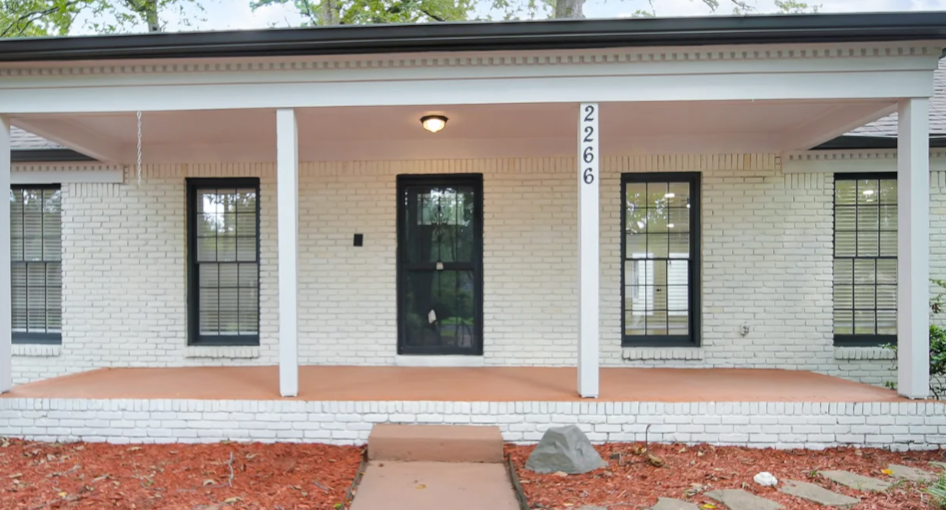Memphis Divorce and House Sales: Your Options Explained

Divorce proceedings in Memphis create complex challenges for couples who own real estate together, requiring decisions about property division that can significantly impact both parties' financial futures while navigating emotional stress and legal requirements. With Memphis's median home price of $204,625 and homes typically selling in 31 days, understanding your options for handling real estate during divorce can help ensure that property decisions support your long-term financial goals while facilitating fair and efficient divorce resolution.
Tennessee's equitable distribution laws and Memphis's current real estate market conditions create specific opportunities and challenges for divorcing couples who need to divide property assets. Whether you're dealing with a family home in East Memphis, investment properties throughout the metropolitan area, or rental properties that generate ongoing income, understanding how different approaches to property division work in practice can help you make informed decisions during one of life's most challenging transitions.
The Memphis real estate market's characteristics, including strong cash buyer presence throughout Shelby, Fayette, Tipton, and DeSoto counties, provide divorcing couples with alternatives to traditional property sales that can expedite asset division while minimizing the stress and complexity of managing real estate transactions during divorce proceedings. These alternatives can be particularly valuable when couples need quick resolution, want to avoid ongoing property management responsibilities, or face properties that might be difficult to sell through conventional methods.
Understanding Tennessee divorce law, Memphis market conditions, and the practical implications of different property division strategies helps divorcing couples protect their interests while achieving fair outcomes that allow both parties to move forward with their lives and financial planning.
Tennessee Divorce Property Laws
Tennessee follows equitable distribution principles for property division in divorce, meaning that marital property is divided fairly but not necessarily equally between spouses. Understanding how these laws apply to real estate helps divorcing couples in Memphis make informed decisions about property division strategies that protect their interests and comply with legal requirements.
Marital vs. Separate Property Classification
Tennessee law distinguishes between marital property, which is subject to division in divorce, and separate property, which typically remains with the original owner. Real estate acquired during marriage is generally considered marital property regardless of whose name appears on the deed, while property owned before marriage or acquired through inheritance or gift may be classified as separate property.
The classification of real estate can become complex when separate property is improved using marital funds, when mortgage payments are made with marital income, or when both spouses contribute to property maintenance and improvements. Memphis couples should understand that these contributions can create marital property interests in otherwise separate real estate.
Properties purchased before marriage but significantly improved or paid down during marriage may have both separate and marital components that require careful valuation and division. This complexity makes professional appraisal and legal guidance important for accurate property division.
Equitable Distribution Factors
Tennessee courts consider multiple factors when dividing marital property, including the length of marriage, each spouse's financial contributions, non-financial contributions such as homemaking and child care, each party's earning capacity, and the economic circumstances of each spouse at the time of divorce.
For Memphis real estate, these factors might influence whether one spouse receives the family home while the other receives other assets of equal value, whether properties are sold and proceeds divided, or whether one spouse buys out the other's interest in real estate assets.
The court's goal is achieving fair outcomes that consider both parties' contributions and future needs, which may result in unequal property divisions when circumstances warrant different treatment based on the equitable distribution factors.
Debt Allocation and Mortgage Responsibilities
Mortgage debt associated with marital real estate must also be divided equitably, though debt division doesn't necessarily follow the same pattern as asset division. One spouse might receive real estate while both remain responsible for mortgage debt, creating potential complications that require careful planning.
Memphis couples should understand that divorce decrees don't automatically release either party from mortgage obligations to lenders, even when the court assigns responsibility to one spouse. Refinancing or property sale may be necessary to eliminate ongoing joint liability for real estate debt.
Property division agreements should address both asset ownership and debt responsibility clearly to avoid future conflicts and ensure that both parties understand their ongoing obligations related to real estate assets.
Options for Handling Real Estate in Memphis Divorce
Divorcing couples in Memphis have several options for handling real estate assets, each with different financial, legal, and practical implications that should be considered based on the specific circumstances of the divorce and the properties involved.
One Spouse Keeps the Property
One common approach involves one spouse keeping the family home or other real estate while the other spouse receives assets of equivalent value or a buyout payment. This option works best when one spouse wants to maintain homeownership and has sufficient income to qualify for mortgage refinancing or can afford buyout payments.
The spouse keeping the property typically must refinance the mortgage to remove the other spouse's liability, which requires qualifying for new financing based on individual income and credit. Memphis's current interest rate environment and lending standards affect the feasibility of this approach for many divorcing couples.
Buyout arrangements require accurate property valuation to ensure fair compensation for the spouse giving up their interest in real estate. Memphis market conditions and property-specific factors influence these valuations and should be assessed by qualified appraisers familiar with local market conditions.
This approach allows one spouse to maintain stability and continuity, particularly important when children are involved, but it also concentrates real estate risk with one party and may limit their financial flexibility for other investments or housing options.
Sell the Property and Divide Proceeds
Selling real estate and dividing the proceeds provides clean separation of property interests and eliminates ongoing joint ownership responsibilities. This approach works well when neither spouse wants to keep the property, when buyout arrangements aren't feasible, or when couples prefer liquid assets over real estate holdings.
Traditional real estate sales in Memphis typically take 60 to 90 days from listing to closing, during which time divorcing couples must cooperate on property preparation, marketing decisions, and sale negotiations. This cooperation requirement can be challenging during contentious divorces and may delay divorce finalization.
The sale proceeds are typically held in escrow or trust accounts until divorce finalization to ensure proper distribution according to court orders or settlement agreements. Memphis couples should understand how sale proceeds will be managed and distributed to avoid conflicts during the sale process.
Market conditions at the time of sale significantly impact the proceeds available for division, and divorcing couples bear the risk that property values may decline between the decision to sell and the actual sale completion.
Continued Joint Ownership
Some divorcing couples choose to maintain joint ownership of real estate, particularly when market conditions are unfavorable for immediate sale or when properties have strong appreciation potential. This approach requires ongoing cooperation and clear agreements about property management, expenses, and future sale decisions.
Continued joint ownership works best for investment properties or vacation homes rather than family residences, as it avoids the emotional complications of shared ownership of former marital homes. Memphis rental properties with positive cash flow may be suitable for continued joint ownership with shared rental income.
This approach requires detailed agreements about property management responsibilities, expense sharing, maintenance decisions, and procedures for future sale or buyout. Without clear agreements, continued joint ownership can create ongoing conflicts that complicate post-divorce relationships.
The tax implications of continued joint ownership should be considered, including depreciation benefits for rental properties and capital gains treatment for future sales.
Cash Buyer Solutions for Divorce
Cash buyers provide divorcing Memphis couples with alternatives that can expedite property division while eliminating many of the complications associated with traditional real estate sales during divorce proceedings.
Cash sales typically close within 2 to 4 weeks, allowing couples to complete property division quickly and finalize divorce proceedings without extended real estate transaction timelines. This speed can be particularly valuable when couples want to minimize ongoing contact and cooperation requirements.
Cash buyers purchase properties "as-is," eliminating the need for couples to agree on repairs, improvements, or property preparation that can create conflicts during traditional sales. This approach allows couples to focus on other aspects of divorce settlement rather than property management decisions.
The certainty of cash sales eliminates risks associated with buyer financing, inspections, and appraisals that can cause traditional sales to fail after weeks of marketing. This certainty helps couples plan their post-divorce finances with confidence about property sale proceeds.
Financial Implications of Different Approaches
Understanding the financial implications of different property division approaches helps divorcing Memphis couples make informed decisions that support their long-term financial goals while achieving fair outcomes for both parties.
Buyout Arrangements and Financing
Buyout arrangements require accurate property valuation and sufficient financial resources for the spouse keeping the property to compensate the other party fairly. Memphis property values and market conditions significantly impact these calculations and should be assessed by qualified professionals.
The spouse keeping property must typically refinance existing mortgages to remove the other party's liability, which requires qualifying for new financing based on individual income and credit. Current interest rates and lending standards affect the feasibility and cost of refinancing arrangements.
Buyout payments can be structured as lump sums, installment payments, or combinations of cash and other assets depending on the financial resources available and the preferences of both parties. Memphis couples should consider the tax implications and cash flow effects of different payment structures.
The spouse receiving buyout payments should consider how these funds will be invested or used for housing, as the proceeds may need to provide down payment funds for new housing or investment opportunities.
Sale Proceeds and Market Timing
The timing of property sales significantly impacts the proceeds available for division, and Memphis market conditions can change during divorce proceedings. Couples should understand how market timing affects their financial outcomes and consider strategies for managing market risk.
Memphis's current market conditions, with homes selling at a 16.9% premium above long-term trends, may provide favorable sale conditions for divorcing couples, though market conditions can change during extended divorce proceedings.
Real estate commissions, closing costs, and other sale expenses reduce the net proceeds available for division and should be factored into financial planning for both parties. These costs typically total 7% to 10% of sale prices in Memphis, representing significant expenses that affect division calculations.
Capital gains taxes may apply to property sales, particularly for investment properties or homes that have appreciated significantly during marriage. Understanding these tax implications helps couples plan for their net proceeds after tax obligations.
Ongoing Ownership Costs and Responsibilities
Continued joint ownership requires ongoing cooperation about property expenses, including mortgage payments, property taxes, insurance, maintenance, and repairs. Clear agreements about expense sharing and decision-making authority help prevent conflicts and ensure proper property management.
Rental properties require ongoing management decisions about tenant selection, rent collection, maintenance, and capital improvements that can create conflicts between divorced co-owners. Professional property management services may help minimize these conflicts while ensuring proper property care.
The tax implications of continued joint ownership include depreciation benefits for rental properties, deductibility of expenses, and capital gains treatment for future sales. Both parties should understand how these tax factors affect their individual financial situations.
Legal Considerations and Court Procedures
Memphis divorce proceedings involving real estate require compliance with Tennessee court procedures and legal requirements that protect both parties' interests while ensuring fair property division outcomes.
Court Approval and Property Orders
Tennessee family courts have authority to order property division and can require specific actions regarding real estate, including sales, transfers, or continued joint ownership arrangements. Court orders provide legal enforceability for property division agreements and protect both parties' interests.
Property division orders should be specific about timelines, responsibilities, and procedures for implementing property decisions. Vague orders can create conflicts and enforcement problems that require additional court intervention.
Memphis couples who reach agreements about property division can typically have these agreements incorporated into court orders without extensive litigation, though court approval ensures that agreements comply with Tennessee law and protect both parties' interests.
Title and Deed Requirements
Property transfers between divorcing spouses require proper deed preparation and recording to ensure clear title for the receiving party. Tennessee law provides specific procedures for property transfers in divorce that must be followed to avoid title problems.
Quitclaim deeds are commonly used for property transfers between divorcing spouses, though warranty deeds may be appropriate in some circumstances. The choice of deed type affects the warranties and protections provided to the receiving party.
Title insurance considerations may apply to property transfers in divorce, particularly when mortgages remain in place or when title issues might exist. Memphis couples should consider title insurance protection for significant property transfers.
Mortgage and Lender Considerations
Divorce decrees don't automatically release either party from mortgage obligations to lenders, even when courts assign responsibility to one spouse. Lenders must agree to release parties from mortgage liability, typically through refinancing or assumption procedures.
Mortgage assumption procedures allow one spouse to take over mortgage obligations while releasing the other party from liability, though not all mortgages are assumable and lenders must approve assumption arrangements.
Refinancing requirements may include income verification, credit checks, and appraisals that can delay property division implementation. Memphis couples should understand these requirements and plan accordingly for property division timelines.
Working with Professionals During Divorce
Successfully navigating real estate issues during Memphis divorce often requires professional assistance from attorneys, real estate professionals, appraisers, and other experts who understand both divorce law and local market conditions.
Divorce Attorneys and Legal Representation
Experienced divorce attorneys help protect clients' interests in property division while ensuring compliance with Tennessee law and court procedures. Memphis area attorneys with real estate experience understand the complexities of property division and can provide valuable guidance.
Legal representation becomes particularly important when property division involves complex issues such as business interests, multiple properties, or disputes about property classification and valuation.
Collaborative divorce approaches may help couples work together on property division decisions while still maintaining legal representation and protection for both parties' interests.
Real Estate Professionals and Appraisers
Qualified appraisers provide objective property valuations that support fair division decisions and court approval of property settlements. Memphis area appraisers familiar with local market conditions can provide accurate assessments of property values.
Real estate agents with divorce experience understand the unique challenges of marketing properties during divorce proceedings and can help couples navigate sale processes while minimizing conflicts and delays.
Cash buyers who specialize in divorce situations understand the urgency and complexity of these transactions and can provide alternatives that expedite property division while eliminating many traditional sale complications.
Financial and Tax Advisors
Financial advisors help divorcing parties understand the long-term implications of different property division strategies and plan for their post-divorce financial goals and housing needs.
Tax professionals provide guidance about the tax implications of property transfers, sales, and continued ownership arrangements that can significantly impact the financial outcomes of different approaches.
Mortgage professionals help assess refinancing options and qualification requirements for spouses who want to keep real estate while removing their former partners from mortgage liability.
Emotional and Practical Considerations
Divorce involving real estate creates emotional and practical challenges beyond the financial and legal aspects that require careful consideration and planning for successful outcomes.
Family Home and Emotional Attachments
The family home often has significant emotional value beyond its financial worth, particularly when children are involved or when couples have invested substantial time and effort in property improvements. These emotional factors can complicate objective decision-making about property division.
Keeping the family home may provide stability and continuity for children, but it also requires sufficient financial resources for ongoing ownership and may limit financial flexibility for other post-divorce goals.
Selling the family home can provide closure and fresh starts for both parties while eliminating ongoing joint ownership responsibilities, though it also requires finding new housing and may disrupt children's stability.
Timeline Pressures and Decision-Making
Divorce proceedings often involve timeline pressures that can affect property division decisions, particularly when court schedules, financing requirements, or market conditions create deadlines for property actions.
Quick decision-making may be necessary when market conditions are favorable for property sales or when financing opportunities have limited availability. Memphis couples should be prepared to act decisively when opportunities arise.
Extended decision-making processes can create ongoing stress and uncertainty while potentially missing favorable market conditions or financing opportunities that could benefit both parties.
Children and Stability Considerations
Property division decisions significantly impact children's stability and living arrangements, making these considerations important factors in developing property division strategies that serve the family's overall interests.
Maintaining children in familiar neighborhoods and schools may influence decisions about keeping the family home, even when other factors might favor different approaches to property division.
The financial resources available for children's needs, including education, activities, and future planning, may be affected by property division decisions and should be considered in overall settlement planning.
Conclusion: Making Informed Property Decisions During Memphis Divorce
Divorce involving real estate requires careful consideration of legal requirements, financial implications, market conditions, and personal circumstances that affect both immediate outcomes and long-term financial goals. Memphis couples who understand their options and work with qualified professionals can achieve fair property division outcomes that support their post-divorce financial planning and personal objectives.
The Memphis real estate market's current conditions, including strong cash buyer presence and relatively quick sale times, provide divorcing couples with viable alternatives to traditional property division approaches. Whether through buyout arrangements, traditional sales, or cash buyer transactions, couples can find solutions that meet their needs for speed, certainty, and fair financial outcomes.
Success in divorce property division requires honest assessment of financial resources, realistic evaluation of market conditions, and clear communication about priorities and objectives. Memphis couples who approach property division systematically and professionally often achieve better outcomes than those who make decisions based on emotions or incomplete information.
Remember that property division decisions have long-term implications for both parties' financial futures and housing situations. Focus on solutions that provide fair outcomes while supporting your post-divorce goals and financial stability rather than decisions based solely on immediate circumstances or emotional factors.
Request Your Offer Now











